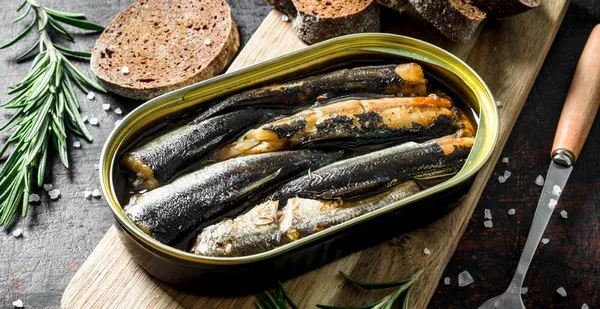The ketogenic diet, known for its emphasis on low-carbohydrate and high-fat intake, has gained popularity as an effective way to promote weight loss and overall metabolic health. For individuals following a keto lifestyle, selecting the right foods is crucial, and seafood, particularly fish, stands out as a nutrient-dense and keto-friendly option. In this comprehensive guide, we will explore the diverse world of fish, uncovering which fish are optimal for those on a ketogenic diet.
Understanding the Keto Diet
Before diving into the specifics of fish suitable for a keto diet, it’s essential to grasp the fundamentals of the ketogenic diet itself. This low-carbohydrate, high-fat diet induces a state of ketosis, where the body shifts from using glucose as its primary energy source to burning fat for fuel. Achieving and maintaining ketosis requires careful attention to macronutrient ratios, with the majority of calories coming from fats, followed by moderate protein intake and minimal carbohydrates.
Fatty Fish: A Keto Powerhouse
Fatty fish are a cornerstone of the ketogenic diet due to their rich content of healthy fats, particularly omega-3 fatty acids. These essential fats not only support overall cardiovascular health but also play a crucial role in reducing inflammation and promoting cognitive function. Additionally, the high fat content in fatty fish aligns with the macronutrient profile favored by keto enthusiasts.
Include the following fatty fish in your keto meal plan:
Salmon: A fatty fish rich in omega-3s, salmon is not only delicious but also versatile for various keto recipes.
Mackerel: With a robust flavor and high omega-3 content, mackerel is an excellent choice for keto enthusiasts.
Sardines: Packed with nutrients, including omega-3s, sardines are convenient and budget-friendly.
Herring: This fatty fish offers a distinctive taste and is a great source of both omega-3s and vitamin D.
Rich in Omega-3s: Anchovies and Trout
Anchovies and trout may not be as mainstream as some other fish varieties, but they pack a powerful punch when it comes to omega-3 fatty acids. Omega-3s, particularly eicosapentaenoic acid (EPA) and docosahexaenoic acid (DHA), are associated with numerous health benefits, including improved heart health, reduced inflammation, and enhanced brain function.
Incorporate anchovies and trout into your keto menu for a nutrient boost:
Anchovies: These small, flavorful fish are not only rich in omega-3s but also provide calcium and iron.
Trout: A freshwater fish with a mild taste, trout is an excellent source of protein and omega-3 fatty acids.
Shellfish: Low in Carbs, High in Nutrients
Shellfish, including shrimp, crab, lobster, and mussels, are low in carbohydrates and rich in essential nutrients, making them keto-friendly options. They are also excellent sources of protein, which is crucial for maintaining muscle mass during weight loss, a common goal for those on the ketogenic diet.
Include the following shellfish in your keto-friendly seafood lineup:
Shrimp: Low in carbs and high in protein, shrimp is a versatile option for keto recipes.
Crab: With a sweet and delicate flavor, crab is low in carbs and provides essential nutrients.
Lobster: A decadent choice, lobster is low in carbs and offers a good dose of protein.
Mussels: These nutrient-packed mollusks are not only low in carbs but also rich in vitamins and minerals.
Keto-Friendly White Fish: Cod and Halibut
While fatty fish take center stage in the keto diet, certain white fish are also excellent choices. Cod and halibut are examples of lean white fish that are low in fat and carbohydrates, making them suitable for those aiming to meet their protein needs without significantly impacting their fat intake.
Incorporate cod and halibut into your keto meals for a lean protein source:
Cod: A mild-flavored fish, cod is versatile and can be grilled, baked, or pan-seared.
Halibut: With a firm texture and a slightly sweet taste, halibut is a nutritious addition to a keto-friendly diet.
Canned Fish: Convenience Meets Nutrition
Canned fish, such as tuna and salmon, offer a convenient and shelf-stable option for those on a ketogenic diet. They are readily available, budget-friendly, and versatile, making them an excellent choice for quick and easy keto meals.
Include canned fish in your keto pantry for added convenience:
Canned Tuna: A staple in many households, canned tuna is a reliable source of protein and omega-3s.
Canned Salmon: An affordable and nutritious option, canned salmon provides omega-3 fatty acids and is often enjoyed bone-in for added calcium.
Avoiding Hidden Carbs: Reading Labels
While fish is generally low in carbohydrates, it’s crucial to be mindful of any added ingredients or preparation methods that may introduce hidden carbs. Some commercially processed fish products, such as fish sticks or breaded fish fillets, may contain added carbohydrates in the form of breading or sauces.
When selecting fish for a keto diet, consider the following tips:
Choose fresh or frozen fish: Opt for whole fish or fillets without added ingredients for a purer source of protein and healthy fats.
Check labels on canned fish: Ensure that canned fish is packed in water or oil without added sugars or high-carb sauces.
Conclusion
Incorporating fish into a ketogenic diet offers a multitude of benefits, from providing essential omega-3 fatty acids to supplying high-quality protein. Fatty fish like salmon, mackerel, and sardines are particularly advantageous for those following a keto lifestyle, thanks to their rich fat content and associated health benefits.
By diversifying your seafood choices and incorporating a mix of fatty fish, shellfish, white fish, and canned options, you can create a well-rounded and delicious keto-friendly menu. Remember to prioritize fresh or minimally processed fish, be mindful of added ingredients, and enjoy the nutritional benefits that seafood brings to your ketogenic journey. Whether you’re a seafood enthusiast or looking to expand your keto-friendly options, the world of fish is a bountiful sea of possibilities for those seeking both flavor and nutritional value in their pursuit of a ketogenic lifestyle.

